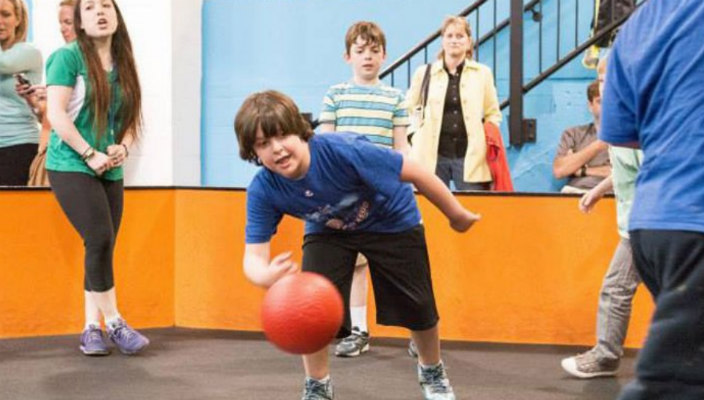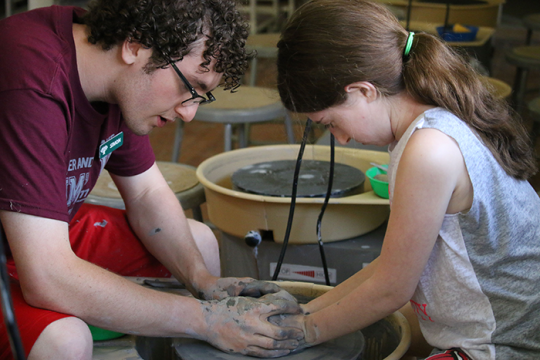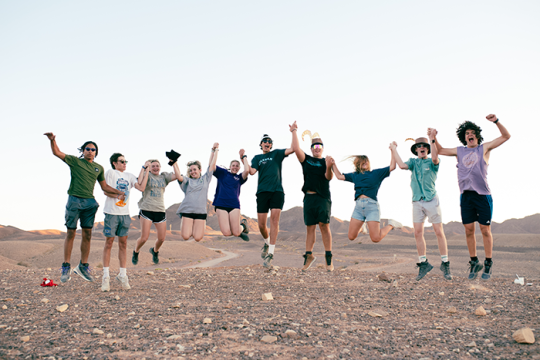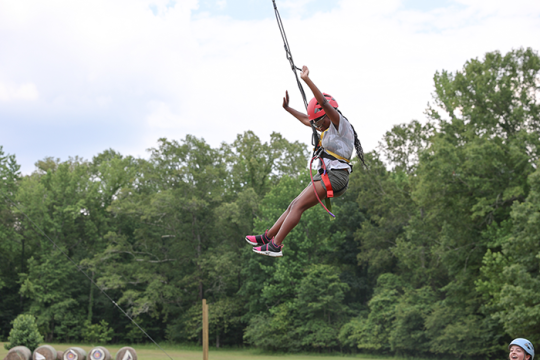
Every morning this summer, when I drop my 6-year-old son off at Jewish day camp, he immediately makes a beeline for the orange-walled pit where the kids play a variant of dodgeball called ga-ga. A counselor drops the ball, it bounces three times (“ga! ga! ga!”), and then the game begins. Players hit the ball at each other using their hands, and if you’re hit below the waist with the ball, you’re out. The game continues until there’s a winner, and then starts over again.
My son’s daily ritual always brought something of a smile to my face, as I, too, was once an avid ga-ga player, back in my own Jewish summer camp days. At Olin Sang Ruby Union Institute, the Reform-movement-affiliated camp in Oconomowoc, Wisconsin, I spent long afternoons playing ga-ga in the building known as Port Hall, first as a camper and then as a counselor, throughout the 1990s. Over years of playing, I perfected several strategies, such as the best ways to bounce the ball off the wall, how to do a reverse hit through the legs, and how best to avoid hand rug burns—“ga-ga knuckle”—and other common injuries. To me, ga-ga was as much a part of my Jewish summer camp experience as song sessions, “bug juice,” and camp cheers.
Read the rest of this piece in Tablet.
Have something to say about this post? Join the conversation in The Tent, the social network for congregational leaders of the Reform Movement. You can also tweet us or tell us how you feel on Facebook.
Related Posts

Embracing Jewish Identity, Learning to Lead: The Lifelong Benefits of Working at Summer Camp

Empowering Tomorrow: The Enduring Impact of Youth & Teens in Reform Judaism's 150-Year Journey
